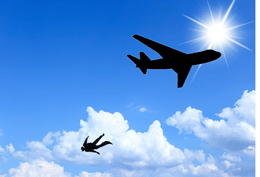 It’s strange how Gotama’s path to freedom became an organized religion—but then, Buddhism is a treasury of paradoxes.
It’s strange how Gotama’s path to freedom became an organized religion—but then, Buddhism is a treasury of paradoxes.
It’s also a cradle of iconoclasts. How many owe a debt of gratitude to the very foundations they’ve smashed. For twenty-six hundred years the institutions of Buddhism preserved the history and pickled the words. Siddhattha’s human story was turned into trite formulas—noble truths, folds of a path, heaps of consciousness—untouchable arrangements of words that as easily bog you down in dogma as unleash your imagination. Yes, the paradoxes abound.
To be more specific, we owe a debt of gratitude to those Buddhists who work in the uneasy shadow of paradox, wrenching fresh meaning from dry words and usurping the local establishment.
It’s always local. There’s no monolithic Buddhism, just a thousand regional interpretations and communities, each sprouting its own its left and right wings. It comes down to the tension between the conservatives and the progressives, one claiming to own the original and the other claiming it can’t be owned. Gotama himself cut off his beautiful long hair and abandoned his family, driving a knife deep into the hearts of his loved ones. If he were around today he’d be trashed in the tabloids and trolled on social media.
Liberation must be wrenched from dogma
Liberation cannot be guaranteed. It must be wrenched from dogma, puzzled over like a cryptic equation until the simplicity is unlocked and you feel, “Yes! Surely, this is what he felt.” Somehow, it must explain his audacious claim.” Perfect enlightenment indeed.
One thing’s for sure. Breakthrough takes special courage—an outrageous leap of faith in oneself, one that cannot coexist with the certainties of any ancient and venerable tradition.
